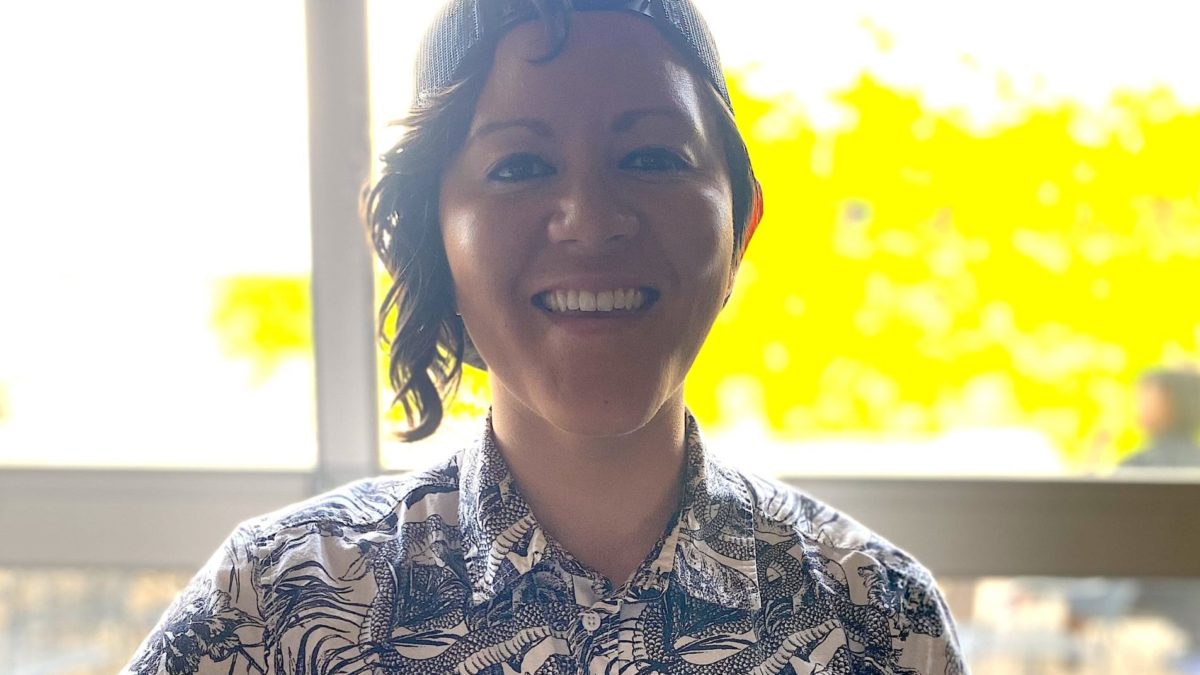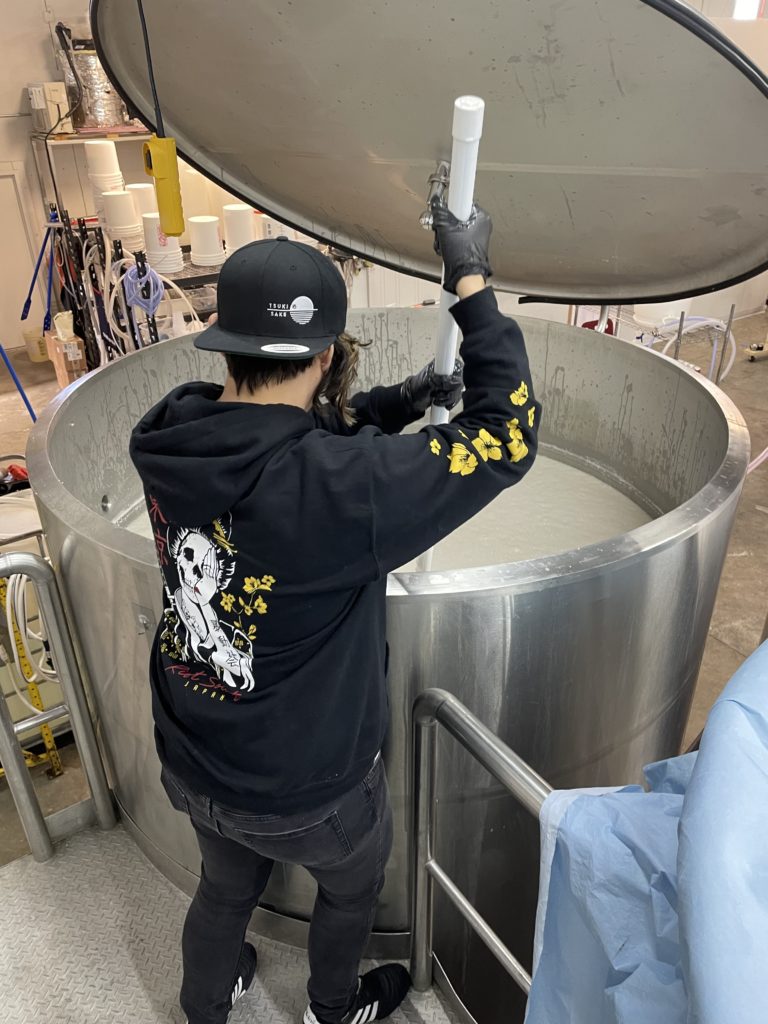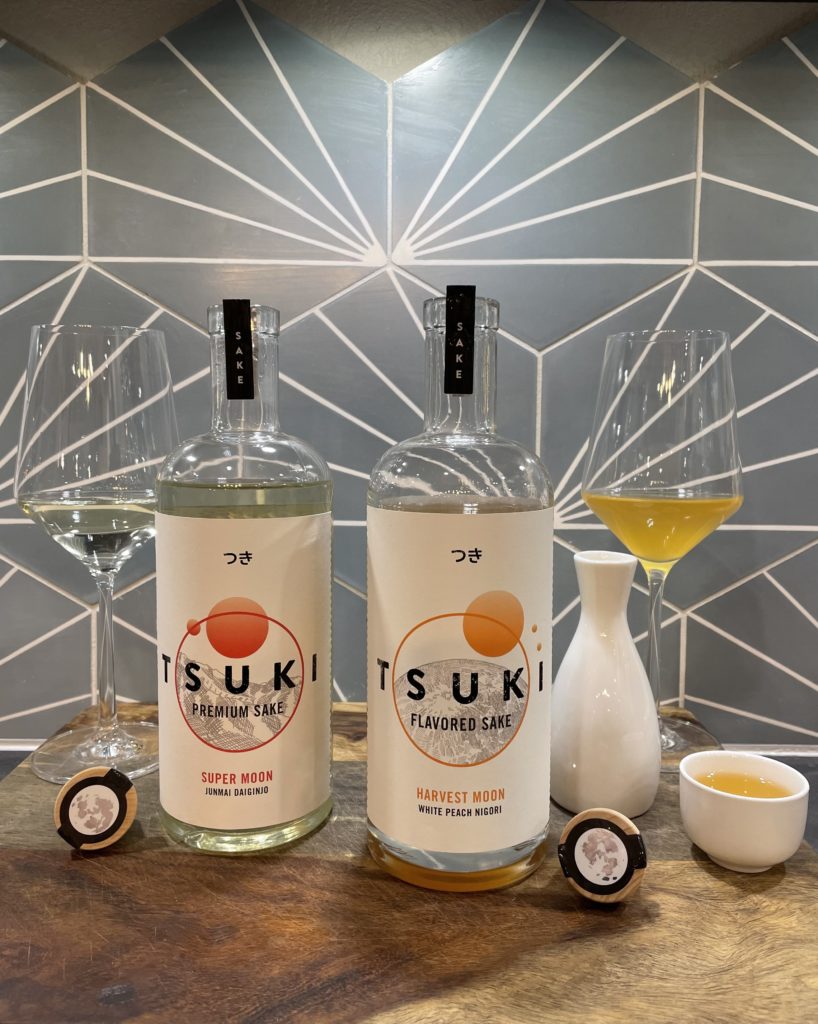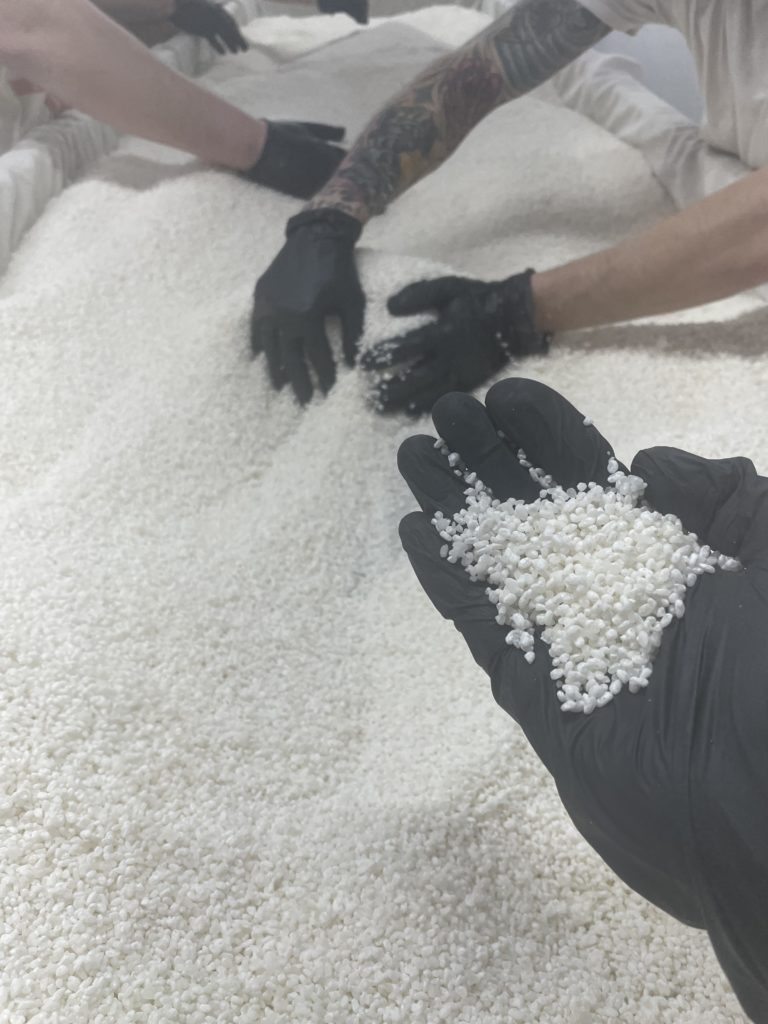Business
Jillian Watanabe of Tsuki Sake claims space in sake industry

Watanabe founded Tsuki Sake with partners Ty Eldridge and Kirk Tiroshima amidst the pandemic. Photo: Jillian Watanabe.
SALT LAKE CITY – Jillian Watanabe, co-founder of Tsuki Sake, was scheduled to go to Japan three times since the pandemic started but was thwarted at every occasion. “Maybe the fourth time is the charm,” said Watanabe. “It’ll happen when it’s supposed to.” However, the pandemic did create the environment in which she founded Tsuki Sake. Its first batch of premium sake was released in April 2021, and sales have doubled since then.
“I feel like everyone had really big plans in 2020 that got completely derailed,” said Watanabe. “I was working in fine dining at Yama Sushi in Montage at the time, and I had plans to travel to Japan for a sake brewing internship. I was also exploring how to open a sake brewery. Those were my plans, and then we all know what happened next. All of a sudden, I had a lot of free time on my hands, and tried to make lemonade out of lemons and started attending a lot of virtual sake brewery tours and kept up on my studies.”

The half-Japanese Salt Lake City native said it’s pronounced sock-ay; not that she would ever correct anyone’s pronunciation, she only told me because I asked. And she should know. Watanabe has worked in fine dining Japanese cuisine like Yama Sushi at the Montage Deer Valley and Tsunami with locations around the Salt Lake area. She has a sommelier level one and sake sommelier certifications, and she continues to explore head-first everything sake-related.
“You can’t enjoy Japanese cuisine without experiencing sake in some way because the two are so closely related in Japanese culture,” she said. Watanabe’s great-great-grandparents emigrated from the Hiroshima prefecture, where her idol Miho Imada brews sake. Her sister, Kara Cordray, stepped into the culinary world first and led the way for Watanabe to explore Japanese cuisine. She found one of her favorite parts of her job was educating guests on sake and how to pair it with food.
To some, especially in the U.S., it may seem trivial that Jillian Watanabe is a female sake brewer and brewery co-owner, but in sake’s long history, there was a significant period when women were seen as unclean. It was thought that women had no place brewing the national beverage of Japan and that stigma still lingers in Japanese breweries to this day. But centuries ago, this industry was dominated by females.
According to multiple online sources, with over 1,500 sake breweries in the world, there are less than 50 women tojis, or master brewers. The origin of the word toji, however, is widely theorized as meaning women head of households or independent women.
“It’s interesting how this field specifically appeals to women,” she said. “One thing that blows my mind every time is that the title for a master brewer in Japan is a ‘toji.’ And sake was actually originally brewed by women, and they changed [the word]. It’s with a long ‘o’ now.”
Watanabe looks up to many female tojis like Imada, Chiaki Takahashi of Hawaii’s Islander Sake Brewery but partners Kirk Terashima (the co-owner and executive chef for Yuki Yama) and Ty Eldridge and Colorado-based purveyor William Stuart are her greatest resources and allies.

“I had gotten wind of a couple other guys local to Salt Lake interested in starting a sake brewery,” said Watanabe. “So, I reached out to them; I cold-called Kirk and kind of leaned on my last name being Watanabe and said, ‘hey, I heard you wanted to start a sake company …I think I know a way we can do it.’ And then he and I met with Ty, and we took off from there. It was a very serendipitous beginning.”
Tsuki Sake currently has two products – a Junmai Daiginjo and a white peach Nigori. Here’s a quick vocabulary lesson; we’ll start with the basics. Sake is a Japanese alcoholic beverage made from fermented rice; the rice used has been polished to remove the outer layer, called bran. Ginjo is a premium sake using rice polished at least 40%.
Junmai Daiginjo means ‘big ginjo.’ According to True Sake, “The Junmai Daiginjo category has the highest standards of milling rates in the sake market with a minimum of 50% rice polishing and 50% remaining.”
Tsuki Sake’s Super Moon Junmai Daiginjo is a premium sake brewed with American-grown Yamada Nishiki rice, “the King” of sake rice. The Harvest Moon white peach Nigori is an unfiltered, cloudy-looking sake with white peach puree. Its website even has a Sake 101 page to learn more about the ingredients and process.

“The Junmai Daiginjo with Yamada Nishiki rice was what I had in my head for our first product, but we wanted to have a product that was approachable for people who only had hot sake before or maybe didn’t know a lot about sake. So, we did the white peach to accommodate that, which can bring them to try our passion project, the Junmai Daiginjo, which is just super aromatic, ultra-premium, cold filtered, low and slow fermentation Ginjo-style sake.”
Watanabe “geeks out” with rice grains, filtration, styles, and water minerality, “you just keep climbing down the rabbit hole forever. Because there’s always more you can learn.”
The Tsuki Sake team has various products on the drawing board and one to release soon. “We just want to keep being creative and figure out what people like to drink because the welcome that we received from Salt Lake was just mind-blowing. I didn’t know what to expect, kind of throwing darts at a board and hoping they stick, and people totally loved it, and it’s just been awesome.”



















